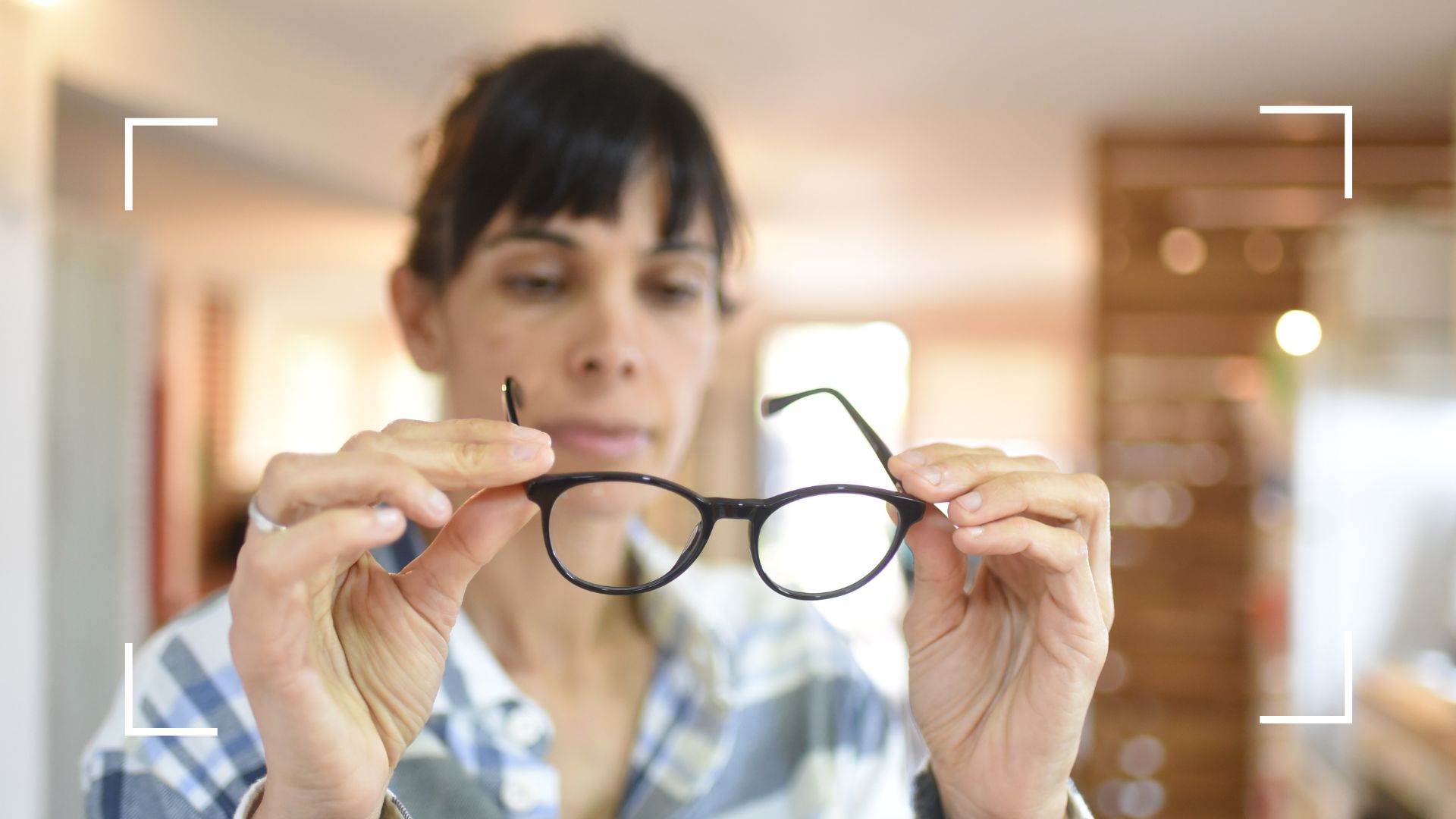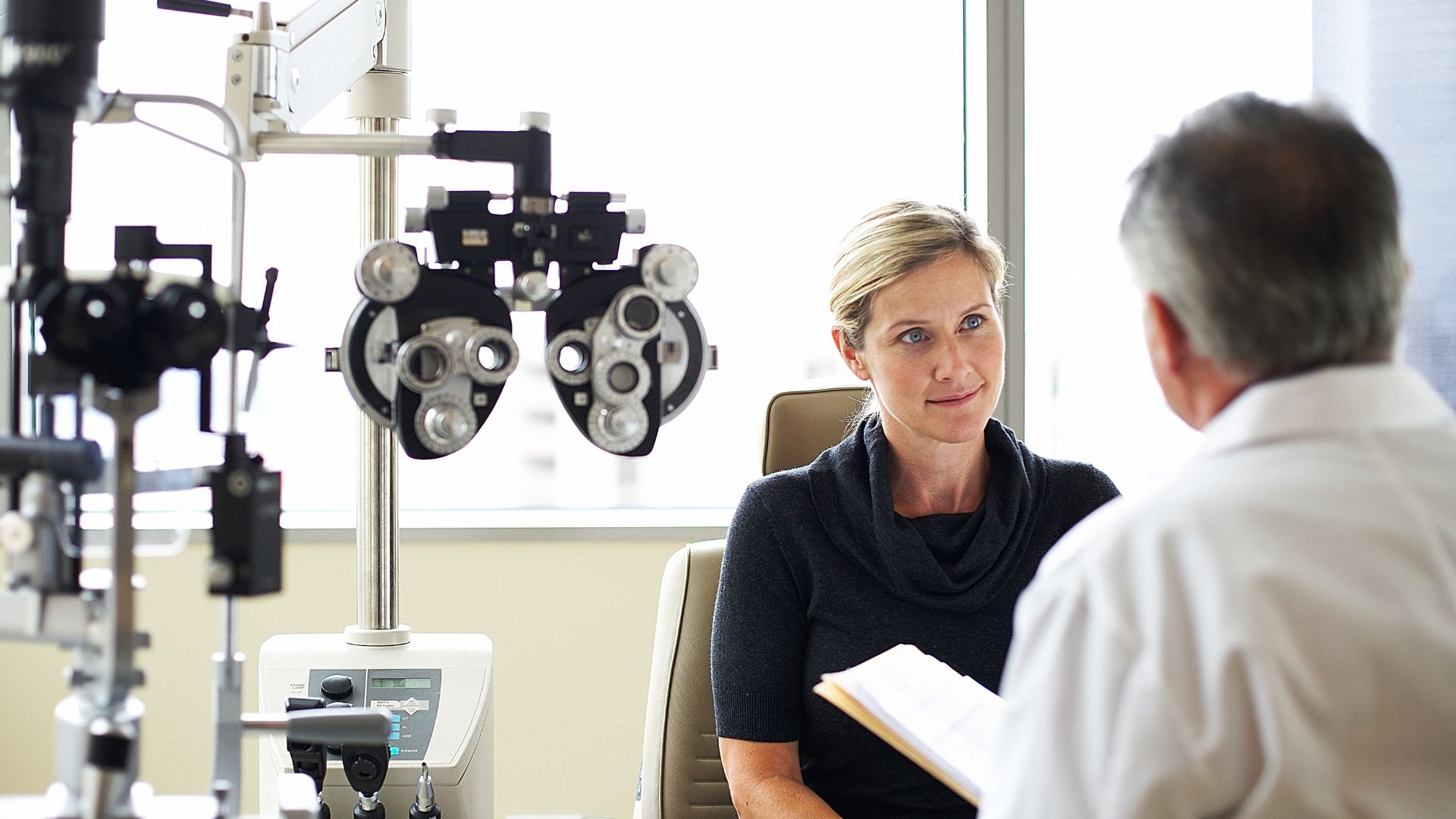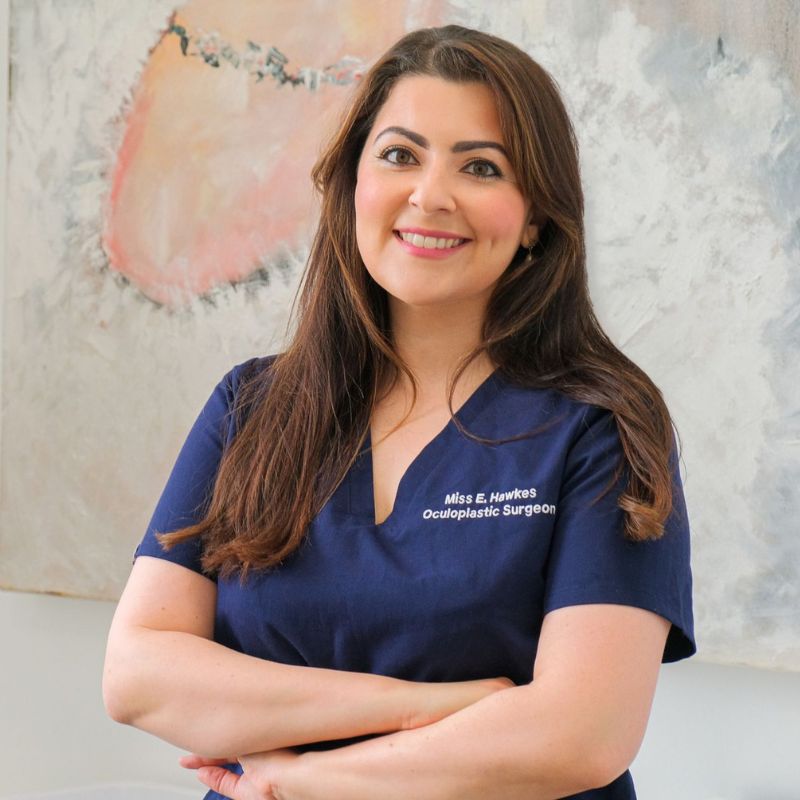Can menopause cause dry eyes? Doctors reveal the truth behind the symptom
You might not think having dry eyes has anything to do with menopause, but this is actually one of the more unexpected symptoms


Can menopause cause dry eyes? It's a fair question to ask. It's not one of the symptoms we immediately associate with menopause, but it's actually more common than you might think.
During the various stages of menopause, many symptoms pop up that we either don't see coming or don't immediately link to the hormonal changes in our bodies. As everyone is different, these symptoms can come about at once as perimenopause begins or appear gradually through the years.
Dry eyes are one of them and it's one of the more unexpected symptoms of menopause that could affect your day-to-day life the most. As many of us don't think about our ocular health outside of the bi-annual eye test, it's one to think about. We spoke to optometrists about why it occurs in the first place, what to do about it, and the other eye health issues to be aware of.
Can menopause cause dry eyes?
Yes, menopause can be why your eyes feel dry, itchy, and comfortable. Whether you’re just starting to experience the symptoms of perimenopause or have hit menopause already, it's common to find your ocular health changes just as much as anything else.
Optometrist Maria McAllister, who works at Specsavers, explains that this change is down to the decline of one hormone in particular: androgen. "During menopause the androgen hormone decreases, affecting the meibomian gland in the eyelids," she says. "The meibomian glands produce the essential oils for the tears, so the reduction in oil results in increased tear evaporation and drier eyes."
Changing hormone levels can also affect all three layers of the tear film, reducing the quantity and quality of your tears.
To solve the issue in the short term, consider trying some preservative-free artificial tears, which are eye drops that hydrate dry and/or tired eyes on the go. You can speak to your pharmacist about options, and book an eye appointment to speak to a doctor about other options and possible longer-term treatments.
Sign up to our free daily email for the latest royal and entertainment news, interesting opinion, expert advice on styling and beauty trends, and no-nonsense guides to the health and wellness questions you want answered.

Starting her career as an optometrist for Specsavers in 2009, McAllister has worked within the optical sector for over thirteen years and is currently working as a Divisional Clinical Performance Consultant for Specsavers.

Does menopause cause eye problems?
Unfortunately, it’s not just dry eyes that can be caused by menopause symptoms. There are several other side effects that can show up and start affecting your eyesight and overall eye health. We asked optometrists what other conditions can be expected through menopause and why they surface during this time.
1. Change in eye shape
This may sound a little more frightening but don't worry, the change is minimal. It's also very common and happens for plenty of other reasons aside from menopause as well.
When experiencing menopause, the fluctuation and sudden change in hormones can lead to a slight change in your eye shape, optometrist Charlotte Cook, who works with Bayfields Opticians, explains. "This can cause problems for women who wear contact lenses," she says, "So it can be a good idea for you to have your eyes checked to ensure you're wearing the right lens."
Most people won't even notice the change, but if you wear contact lenses and are suddenly finding them uncomfortable, it's something to consider.

Qualifying as an optometrist in 2005, Cook worked in the refraction and contact lens clinic at Moorfields Eye Hospital for five years. However, she now works as a clinic tester and optometrist coach within Bayfields Opticians.
2. Blepharitis
Blepharitis is a chronic inflammatory condition where an excess amount of bacteria can gather on the eyelashes and eyelids, says Dr Elizabeth Hawkes, a consultant ophthalmic and oculoplastic surgeon.
The hormonal imbalance in menopause affects the tear ducts in the eyes which, as noted, can not only dry the eyes out but also force them to produce too much of the protein (lipid) that protects the eyes' surface.
It can lead to symptoms such as "red eyes, burning, sticky eyes, excessive watering, ocular discomfort, light sensitivity, and foreign body sensation," the surgeon says.
It's a condition that doesn't tend to go away on its own, unfortunately, so if you're experiencing any of these symptoms, it's best to visit an eye doctor for treatment.

Dr Hawkes specialises in complex aesthetic eyelid surgery and is renowned for her delicate surgery techniques. She is also one of a very small group of aesthetic oculoplastic surgeons who also perform intraocular surgery for cataracts. She has won multiple awards for her surgeries and is now head surgeon at the Cadogan Clinic in Chelsea.
3. Change in vision
If you wear glasses or contacts then there's a chance you may experience a change in prescription during any one of the stages of menopause.
"Low oestrogen levels reduce the elasticity of the cornea, thereby altering the light travelling into our eyes," explains Nimmy Mistry, a professional services optician at Vision Direct. "Along with a possible need for a new prescription, undiagnosed or untreated visual changes can lead to eye strain, headaches, and even posture issues due to constant squinting or adjusting focus."
Wonder how often you should have an eye test? NHS guidance suggests we all should be going to the opticians at least once every two years for a regular eye test so if you think your prescription has changed recently, don't hesitate and book an appointment.

Mistry has worked for over 14 years as an ophthalmic optician and since graduating from university has gone on to work as part of Vision Direct's professional services team.
How to keep your eyes healthy during menopause
- Keep hydrated: Making sure you're drinking plenty of water is one of the best steps to help with your eye health, and this means hydration from both the outside and inside. Mistry says, "Drinking plenty of water can help alleviate discomfort and promote ocular health. Also, as we approach the winter months it is important to remember that dry air when indoors can affect eyes, so it’s a good idea to get a humidifier."
- Increase your intake of fatty acids: There are so many health benefits to upping your intake of fatty acids and your eye health is one of them. Mistry says that Omega 3-rich foods such as salmon and walnuts have been shown to reduce your risk of developing dry eye disease. However, she does recommend speaking to your doctor before taking any type of Omega 3 supplement.
- Wear UV-protective sunglasses: Wearing sunglasses with UV protection is key, says Mistry. "With recent studies linking reduced oestrogen levels to cataracts, women undergoing these hormonal changes should be keeping sunglasses handy all year round as a preventative measure," she explains.
- Getting plenty of rest: Unfortunately, menopause can cause insomnia as well. Working to understand how to sleep better given this change can be extremely beneficial for your eye health though, as well as everything else. As Mistry says, "During sleep, the eyes rest and repair and this is essential in maintaining eye health and reducing symptoms of potential dryness."
- Book regular eye tests: Perhaps one of the most important steps to take once you start experiencing menopause and coming across any potential symptoms. Booking regular appointments with your optometrist can allow you to keep tabs on your eye health and be early at finding any developing issues on the horizon.

Emily joined woman&home as a staff writer after finishing her MA in Magazine Journalism from City University in 2023. After writing various health and news content, she now specialises in lifestyle, covering unique cleaning hacks, gardening how-tos, and everything to help your houseplants thrive.